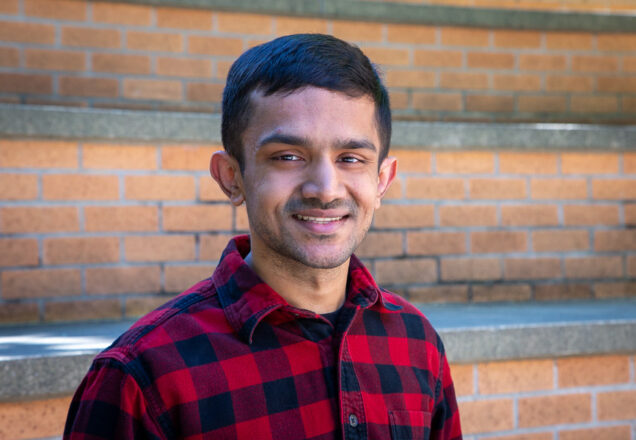Best Political Science Programs
Ranked in 2021, part of Best Social Sciences and Humanities Schools
Political science is a discipline
Political science is a discipline that combines history, current events and analysis. Graduate students are often able to specialize in a certain area of politics. These are the best political science programs. Each school's score reflects its average rating on a scale from 1 (marginal) to 5 (outstanding), based on a survey of academics at peer institutions. Read the methodology »
- Clear Filters


Political Science

77 Massachusetts Avenue Building E53-467 Cambridge MA, 02139
617-253-8336 [email protected]
Website: Political Science
Application Opens: October 9
Deadline: December 15 at 11:59 PM Eastern Time
Fee: $90.00
Terms of Enrollment
Interdisciplinary programs.
Interdisciplinary Doctoral Program in Statistics (IDPS)
Standardized Tests
Graduate Record Examination (GRE)
- General test required
- Institute code: 3514
- Department code: 1902
International English Language Testing System (IELTS)
- Minimum score required: 7
- Electronic scores send to: MIT Graduate Admissions
Test of English as a Foreign Language (TOEFL)
- Minimum score required: 100 (iBT)
- Department code: 92
Waiver of TOEFL/IELTS may be available.
Areas of Research
- American Politics
- Comparative Politics
- International Relations and Foreign Policy
- Models and Methods
- Political Economy
- Security Studies
Application Requirements
- Online application
- Statement of objectives
- Personal statement
- Three letters of recommendation
- Transcripts
- English proficiency exam scores
- CV or Resume
- Writing sample
Special Instructions
In addition to the statement of objectives and personal statement, applicants must submit a resume and a separate writing sample of no more than 50 pages. Writing samples and resumes should be uploaded as PDF attachments to the online application.
Official transcripts should be scanned and uploaded as PDF attachments to the online application. Accepted applicants will be required to provide an official sealed transcript from each college attended.
Eligible applicants may sign up for the Political Science Application Mentorship Program (PS AMP), a volunteer initiative started by graduate students in the department and specifically intended for PhD applicants from communities that have historically been underrepresented in higher education. This includes, but is not limited to, BIPOC (Black, Indigenous, and People of Color), non-cisgender individuals, members of the LGBTQIA+/queer community, individuals with disabilities, first-generation college students, and individuals from low-income backgrounds.
If you think you fall into one of these groups but aren’t sure, we still encourage you to sign up. Applicants will be paired with graduate student mentors who can answer questions about MIT PoliSci and provide application assistance. Participating in PS AMP is completely voluntary and will not affect your graduate admissions decision.
This site uses cookies to give you the best possible experience. By browsing our website, you agree to our use of cookies.
If you require further information, please visit the Privacy Policy page.
Graduate Study at SHASS
World-class graduate studies.
SHASS offers five doctoral and five master’s programs.
Doctoral programs
Our top-ranked PhD program sets the standard for graduate economics training across the country. Graduate students work closely with our world-class faculty to develop their own research and prepare to make impactful contributions to the field.
Our doctoral program enrolls 20-24 full-time students each year and students complete their degree in five to six years. Students undertake core coursework in microeconomic theory, macroeconomics, and econometrics, and are expected to complete two major and two minor fields in economics. Beyond the classroom, doctoral students work in close collaboration with faculty to develop their research capabilities, gaining hands-on experience in both theoretical and empirical projects.
Explore PhD program
History, Anthropology, and STS (HASTS)
The doctoral program in History, Anthropology, and Science, Technology, and Society (HASTS) at MIT, founded in 1988, is a unique interdisciplinary academic community devoted to studying the social, cultural, and political life of science and technology. HASTS faculty work with students to develop original scholarship on the historical foundations and contemporary implications of scientific and technological knowledge and practice.
As a culmination of their work, HASTS students complete dissertations that intervene in scholarly and public conversations about the role of science in society. After graduation, students go on to careers in academia, public service, and private industry.
Explore HASTS
Linguistics
Our 5-year PhD program is designed to introduce students to the basic concepts and results of research in generative linguistics, so that they can begin productively contributing to the department’s research activities. We have found that the best way to achieve this goal is for students to work from the very beginning on problems that are relevant to real-life research.
The program is rigorous and quite demanding of students’ time and energy. A high level of commitment and concentration is required to complete it successfully. The program also contains a relatively large number of required courses. We have found that this extra effort pays off in the long run, since students are exposed to a richer mix of research topics and methods. This also means that our students attain a high level of competence in more than one area, and thus qualify for academic and other positions in more than one specialty.
Explore Linguistics

From scallop fishing in New Bedford to deforestation in the tropics, “our goal is to get some empirical traction on the problem,” says Economics PhD student Aaron Berman.
Our program provides subjects and seminars in such traditional areas as logic, ethics, metaphysics, epistemology, philosophy of science, philosophy of language, philosophy of mind, aesthetics, social and political philosophy, and history of philosophy. Interest in philosophical problems arising from other disciplines, such as linguistics, psychology, mathematics and physics, is also encouraged.
Before beginning dissertation research, students are required to take two years of coursework, including a proseminar in contemporary philosophy that all students must complete in their first year of graduate study. Students are also required to write a fifth term pre-dissertation paper and demonstrate competence in the following areas: value theory, logic and the history of philosophy.
Explore Philosophy

Political Science
Our doctoral students are advancing political science as a discipline. They explore the empirical phenomena that produce new scholarly insights—insights that improve the way governments and societies function. As a result, MIT Political Science graduates are sought after for top teaching and research positions in the U.S. and abroad.
The MIT PhD in Political Science requires preparation in two of these major fields: American Politics, Comparative Politics, International Relations, Models and Methods, Political Economy, or Security Studies. We recommend that you take a broad array of courses across your two major fields.
Explore Political Science

Philosophy doctoral student Abe Mathew is both studying philosophy and questioning some of its deeply-held ideas.
Master’s programs
Data, economics, and design of policy.
The international fight against poverty is more data driven than ever before. Producing and understanding rigorous evidence has become increasingly critical for those seeking to affect change globally, but opportunities to acquire these skills remain limited.
As the first master’s program to be offered by MIT’s Department of Economics, the master’s program in Data, Economics, and Design of Policy (DEDP) is designed to meet this rising demand. Jointly run by the Economics Department and the Abdul Latif Jameel Poverty Action Lab (J-PAL ), the program equips development professionals from across the globe with the practical skills and theoretical knowledge needed to tackle some of the world’s most pressing challenges.
Explore Data, Economics, and Design of Policy
MIT Indigenous Language Initiative (Linguistics)
The MIT Indigenous Languages Initiative is a special master’s program in linguistics for members of communities whose languages are threatened. The goal of the program is to provide its graduates with the linguistic knowledge that will help them in efforts to keep their communities’ languages alive.
In addition, the MIT Indigenous Language Initiative offers expanded opportunities for students and faculty to become involved in indigenous and endangered languages. They do this through working with native speaker linguists in the master’s program and also with outside groups.
Explore Indigenous Language Initiative
Music Technology and Computation
Music technology is a broad field of study with many applications in industry, academia, and the arts. At MIT, our focus is technical research in music technology that always centers the humanistic and artistic aspects of making music. As such, our program is truly multidisciplinary, with faculty, labs, and curricula coming from the Music and Theater Arts Section (MTA) in the School of Humanities, Arts, and Social Sciences (SHASS), and the School of Engineering (SoE).
We define Music Technology as the field of scientific inquiry where practitioners study, discover, and develop new computational approaches to music that include music information retrieval; artificial intelligence; machine learning; generative algorithms; interaction and performance systems; digital instrument design; conceptual and perceptual modeling of music; acoustics; audio signal processing; and software development for creative expression and music applications.
Explore Music Technology and Computation
The MIT Political Science master’s program prepares students to uncover essential insights into the workings of societies and governments in the 21st century. Master’s students develop the skills and knowledge to evaluate and promote effective public policies.
The one-year MIT Master of Science in Political Science is designed for students who want to build proficiency in applied research so that they can pursue successful careers in government, business, and public policy. Students interested in an academic career should read more about the PhD in Political Science.
Science Writing
The MIT Graduate Program in Science Writing (GPSW) is one of the world’s premier master’s programs in science journalism and communication. Set within a community of world-renowned scientists, cutting-edge facilities, and groundbreaking research, our one-year program focuses on introducing students to science communication across a broad range of media, including news and feature reporting, podcasting, data journalism, and documentary film.
During their year here, students learn fundamental research and reporting skills and produce publishable works of print, audio, video, and interactive journalism. Our curriculum teaches students how to interpret and explain science to the wider public, to place research and researchers within their social and historical contexts, and to create pieces that balance hard analysis with creativity and style.
Explore Science Writing

MIT’s Master of Applied Science in Data, Economics, and Design of Policy program adds a public policy track.
More resources
Learn more about MIT graduate studies at the Office of Graduate Education .

Sign up for the SHASS newsletter
Sign up to receive a weekly newsletter with stories about the SHASS community, upcoming events, and our ongoing research.
Graduate Program
Graduate student handbook.
I. Policies and Procedures of the Graduate Program (pdf) A. Advisory System B. Guidelines to Work Load C. Incompletes D. Financial Aid Policy E. Readmission F. Deviations from Written Policy
II. Requirements for the SM Degree (pdf)
III. Requirements for the PhD Degree (pdf) A. Required Courses and Fields of Study B. Political Analysis Requirements C. Language/Advanced Statistics Requirement
IV. Second Year Paper (pdf)
V. General Examinations (pdf)
VI. Dissertation Process and Colloquia (pdf)
For a list of subfield descriptions, click here .
For questions about the handbook, please contact Susan at 617-253-8336 or [email protected] .

Political Methodology Lab
Search form
The core faculty of PML run the Models and Methods (M&M) field for the political science Ph.D. program at MIT. We teach various courses in the field, both for students who choose M&M as their first or second major field and for students who simply want to acquire advanced quantitative skills for their substantive empirical research. We also offer courses at the undergraduate level.
Our graduate course offerings are centered around the four-course Quantitative Research Methods sequence, which is normally taken while a student is in their first and second years of their graduate study. The Quant Sequence is supplemented by the two Math Camps which occur towards the end of summer. The sequence is designed to get students up to speed with the cutting-edge quantitative empirical research in political science and also to prepare them to become first-rate political methodologists.
Other graduate courses include the Formal Theory class, as well as seminar classes focused on the intersections of quantitative methodology and major substative areas of political science, such as political economy and international relations.
Graduate Courses
17.8XX Math Camp I
The Math Prefesher is designed to introduce and review core mathematics and probability prerequisites that you will need to be successful in the quantitative methods courses in the Political Science department and elsewhere at MIT. In an intense one-week course, we will cover key concepts from calculus, linear algebra, probability theory, and an introduction to statistical computing. The learning will proceed through lectures, hands-on exercises, and homework. The aim of the course is to give you an opportunity to practice some of the mathematics you may have previously learned and to introduce you to areas that may be new to you so that you will be ready to enter classes that presume prior familiarity with these concepts, such as 17.800 Quantitative Research Methods I. Syllabus .
17.800 Quantitative Research Methods I: Regression
Graduate level introduction to statistical methods for political science and public policy research, with a focus on linear regression. Teaches students how to apply multiple regression models as used in much of political science and public policy research. Also covers fundamentals of probability and sampling theory. Syllabus .
17.802 Quantitative Research Methods II: Causal Inference
Survey of advanced empirical tools for political science and public policy research with a focus on statistical methods for causal inference, i.e. methods designed to address research questions that concern the impact of some potential cause (e.g., an intervention, a change in institutions, economic conditions, or policies) on some outcome (e.g., vote choice, income, election results, levels of violence). Covers a variety of causal inference designs, including experiments, matching, regression, panel methods, difference-in-differences, synthetic control methods, instrumental variable estimation, regression discontinuity designs, quantile regressions, and bounds. Syllabus .
17.8XX Math Camp II
The math camp will prepare students to take Quant III and Quant IV as well as other advance classes in political methodology. The goal of the class will be to remind students of basic and intermediate mathematical concepts that are useful for Quant III and Quant IV and increase both mathematical fluency and problem solving ability. I will also try to give some programming tools that you may find useful when solving problem sets of Quant III. The prerequisites include Quant I and Quant II. Syllabus .
17.804: Quantitative Research Methods III: Generalized Linear Models and Extensions
This course is the third course in the quantitative research methods sequence at the MIT political science department. Building on the first two courses of the sequence (17.800 and 17.802), this class covers advanced statistical tools for empirical analysis in modern political science. Our focus in this course will be on techniques for model-based inference , including various regression models for cross-section data (e.g., binary outcome models, discrete choice models, sample selection models, event count models, survival outcome models, etc.) as well as grouped data (e.g., mixed effects models and hierarchical models). This complements the methods for design-based inference primarily covered in the previous course of the sequence. This course also covers basics of the fundamental statistical principles underlying these models (e.g., maximum likelihood theory, theory of generalized linear models, Bayesian statistics) as well as a variety of estimation techniques (e.g., numerical optimization, bootstrap, Markov chain Monte Carlo). The ultimate goal of this course is to provide students with adequate methodological skills for conducting cutting-edge empirical research in their own fields of substantive interest. Syllabus.
17.806: Quantitative Research Methods IV: Advanced Topics
This course is the fourth and final course in the quantitative methods sequence at the MIT political science department. The course covers various advanced topics in applied statistics, including those that have only recently been developed in the methodological literature and are yet to be widely applied in political science. The topics for this year are organized into three broad areas: (1) research computing, where we introduce various techniques for automated data collection, visualization, and analysis of massive datasets; (2) statistical learning, where we provide an overview of machine learning algorithms for predictive and descriptive inference; and (3) finite mixture models (e.g., Latent Dirichlet allocation for text analysis), as well as a variety of estimation techniques such as EM Algorithm and Variational Inference. Syllabus .
17.810: Game Theory and Political Theory
This course provides an introduction to formal theoretical analysis in political science. This course is designed as a rigorous introduction to the concepts and models used to analyze political behavior in strategic contexts. The course focuses on non-cooperative game theory covering normal and extensive form games, games of incomplete information, repeated games, and bargaining. Qualified undergraduates can also take the course. Syllabus .
17.830: Empirical Methods in Political Economy
This course surveys recent methodological approaches to the study of political economy. Unlike a typical graduate-level course in political science, we will focus on a limited number of readings each week, with the goal of understanding and evaluating in detail the analytical decisions made by the authors of each study. In addition to learning about advanced methods being used in the social sciences today, the goal of the class is for students to develop an appreciation for how publishable quantitative papers are constructed, from the questions they ask to how they defend and justify the methodological choices they make. Syllabus .
17.426: Empirical Models in International Relations
This course explores statistical methods as applied to international relations, with reference to similar applications in comparative politics and other fields. We will discuss statistical approaches to analyzing various types of data used by IR scholars. We will read both methodological and applied work, familiarizing students with an array of models and critically analyzing their strengths and weaknesses. It is not intended as a substitute for Quantitative Methods I, II, and III , but as a complementary course. The goal of the course is to expose students to the range of quantitative models applied in international relations scholarship, assess the strengths and weaknesses of particular modeling choices, and to develop the ability to design empirical research projects of their own. It is strongly recommended that students have taken Quantitative Methods I prior to this course. Syllabus
17.212: Formal Approaches to American Political Institutions
This is the second in a two-course graduate sequence on American political institutions, emphasizing the concepts and methods in formal theory used to analyze domestic politics. It is organized thematically, according to strategic interactions and social problems that institutions may both solve and exacerbate, such as delegation, collective action, commitment, and preference aggregation. For each of these themes, we will learn some basic game theoretic modeling techniques; closely read a few formative papers; and apply our tools to the analysis of a wide range of specific problems in American politics, including questions about elections, political participation, polarization, representation, the internal organization of Congress and the bureaucracy, separation of powers, campaign finance, redistribution, public goods provision, and the legislative process. Syllabus
17.850: Political Science Scope and Methods (Graduate)
The world is full of compelling stories, fascinating events, and baffling puzzles. But how do these ideas translate into research? The purpose of this course is to help you move from topics of interest to research questions, and to give you the skills necessary to answer those questions with solid, well- designed empirical research. The course draws on current research in political science to introduce you to the enterprise of scientific research in politics. Specifically, the course reviews the basic principles of research design and eval uates the strengths and weaknesses of various empirical approaches. Mastering these skills —indeed internalizing them so that they become second nature —is one of the most important things that you will learn in graduate school. You will emerge from this course not only a more sophisticated consumer of the literature, but in a position to design and conduct your own independent scholarly research. Syllabus
17.878: Qualitative Methods and Fieldwork
This course is intended for political science PhD students, though we will also be drawing on sociology and anthropology. By the end of the course, students should be well-equipped to undertake their own fieldwork. Students will also be familiar with the major debates surrounding qualitative research in the discipline, and they will be able to confidently assess the design, execution, and interpretation of qualitative field research. Syllabus .
17.S953: New Methods for Causal Inference
This is a graduate-level seminar class on recent advancements in the field of statistical methods for causal inference. The purpose of this class is to provide students with experience and skills that are necessary to conduct research on methodological topics professionally. Although the class focuses on methods for causal inference, many of the research skills students will learn in the class will be transportable to methodological research in other subfields. After taking this class, students will be able to read typical articles from journals like the Journal of the American Statistical Association and Political Analysis quite comfortably. They will also be ready to embark on a methodological research project independently, particularly in the field of causal inference. Finally, they will also have built familiarity with cutting-edge causal inference methods potentially useful for their applied work. Syllabus .
17.S950: Bayesian Measurement Models
This course covers quantitative measurement from a Bayesian perspective. It focuses on the specification of measurement models linking observed data (i.e., manifest indicators) to unobserved constructs (i.e., latent variables) of interest. For estimation of these models, we will rely on the probabilistic programming language Stan, as called from R, though we will occasionally touch on other R-based methods. The goal is to get students comfortable specifying and estimating “bespoke” measurement models tailored for particular applications. The course applies this basic framework to a large range of problems and topics, including hierarchical models, factor analysis, item response theory, latent class analysis, ecological inference, network data, and text analysis. Each is covered only in enough depth to provide a sense of what a Bayesian approach to the problem might look like. The course assumes a solid grasp of generalized linear models and the theory of likelihood and Bayesian inference, so successful completion of 17.804 (Quantitative Research Methods III) or its equivalent is a prerequisite for enrollment. Syllabus .
Undergraduate Courses
17.801: Political Science Scope and Methods (Undergraduate)
This course introduces principles of empirical and theoretical analysis in political science through research projects currently conducted in the department. Introduces students to major research questions in political science - and to different ways of examining those questions. Emphasizes how this research in progress relates to larger themes, and how researchers confront obstacles to inference in political science. Includes substantial instruction and practice in writing (with revision) and oral presentations. Syllabus.
17.803: Political Science Laboratory
This class introduces undergraduate political scientists to the basic quantitative tools of political science research. The central theme that runs throughout the course will be causal inference, or how we can distinguish causation from mere association when studying complex political and social phenomena. This class emphasizes practical skills, and involves hands-on exercises, lab sessions, group work, discussion and presentation sessions along with more traditional problem sets. Throughout the semester, students will work on an original research project that involves data collection, analysis with a statistical computing language (R), and a final write-up of their findings. Syllabus.
17.811: Game Theory and Political Theory
17.831: Data and Politics
In this course, students will both learn how statistics are changing elections and how to use statis- tics to analyze political data. While the substantive focus will be on elections, the principles and methods learned in this course have broad applicability to the decision-making in a broad variety of fields. The course will be roughly divided into 4 sections organized around a different methodolog- ical topic, with an application to an electoral phenomenon. For each section, students will work with the professor on analyzing a unique dataset related to electoral politics. The first section will focus on data description and dimension reduction. The second section will involve the analysis of survey data on electoral behavior. The third section will use statistical models to predict electoral behavior using large datasets. The fourth section will focus on the design and implementation of original experiments in order to study political attitudes and behaviors. Syllabus.
17.835 Machine Learning and Data Science in Politics
Empirical studies in political science is entering a new era of “Big Data” where a diverse range of data sources have become available to researchers. Examples include network data from political campaigns, data from social media generated by individuals, campaign contribution and lobbying expenditure made by firms and individuals, and massive amount of international trade flows data. How can we take advantage of these new data sources and improve our understanding of politics? This course introduces various machine learning methods and their applications in political science research. Syllabus .

IMAGES
VIDEO
COMMENTS
The MIT PhD in Political Science requires preparation in two of these major fields: American Politics. Comparative Politics. International Relations. Models and Methods. Political Economy. Security Studies. We recommend that you take a broad array of courses across your two major fields. In some cases, a single course may overlap across the ...
All applications for the SM and PhD programs must be submitted online through GradApply by December 15, 2024 for Fall 2025 admission. Students are admitted as degree candidates only for September. The Political Science GradApply website is at https://gradapply.mit.edu/polisci. The admissions committee will not review late or incomplete ...
Ranked in 2021, part of Best Social Sciences and Humanities Schools. Political science is a discipline that combines history, current events and analysis. Graduate students are often able to ...
All applicants interested in a PhD in Political Science should apply directly to the PhD program whether or not they have a master's degree. Students who are accepted into the master's program in Political Science at MIT typically do not continue on for a PhD. Many of our PhD students do not have prior master's degrees.
November 4, 2024 MIT Political Science. A field's dilemmas. October 31, 2024 Science. Events. ... Hire an MIT PhD; On Diversity; MIT Political Science Massachusetts Institute of Technology 30 Wadsworth Street E53-470 Cambridge, MA 02142 [email protected] +1 617 253 5262 Accessibility.
77 Massachusetts Avenue Building E53-467 Cambridge MA, 02139. 617-253-8336 [email protected]. Website: Political Science. Apply here. Application Opens: October 9
The one-year MIT Master of Science in Political Science is designed for students who want to build proficiency in applied research so that they can pursue successful careers in government, business, and public policy. Students interested in an academic career should read more about the PhD in Political Science. Explore Political Science
The one-year MIT Master of Science in Political Science is designed for students who want to build proficiency in applied research so that they can pursue successful careers in government, business, and public policy. Students interested in an academic career should read more about the PhD in Political Science.
Graduate Student Handbook. I. Policies and Procedures of the Graduate Program (pdf) A. Advisory System B. Guidelines to Work Load C. Incompletes ... MIT Political Science Massachusetts Institute of Technology 30 Wadsworth Street E53-470 Cambridge, MA 02142 [email protected] +1 617 253 5262 Accessibility. Facebook; Twitter;
This course is the third course in the quantitative research methods sequence at the MIT political science department. Building on the first two courses of the sequence (17.800 and 17.802), this class covers advanced statistical tools for empirical analysis in modern political science. Our focus in this course will be on techniques for model ...